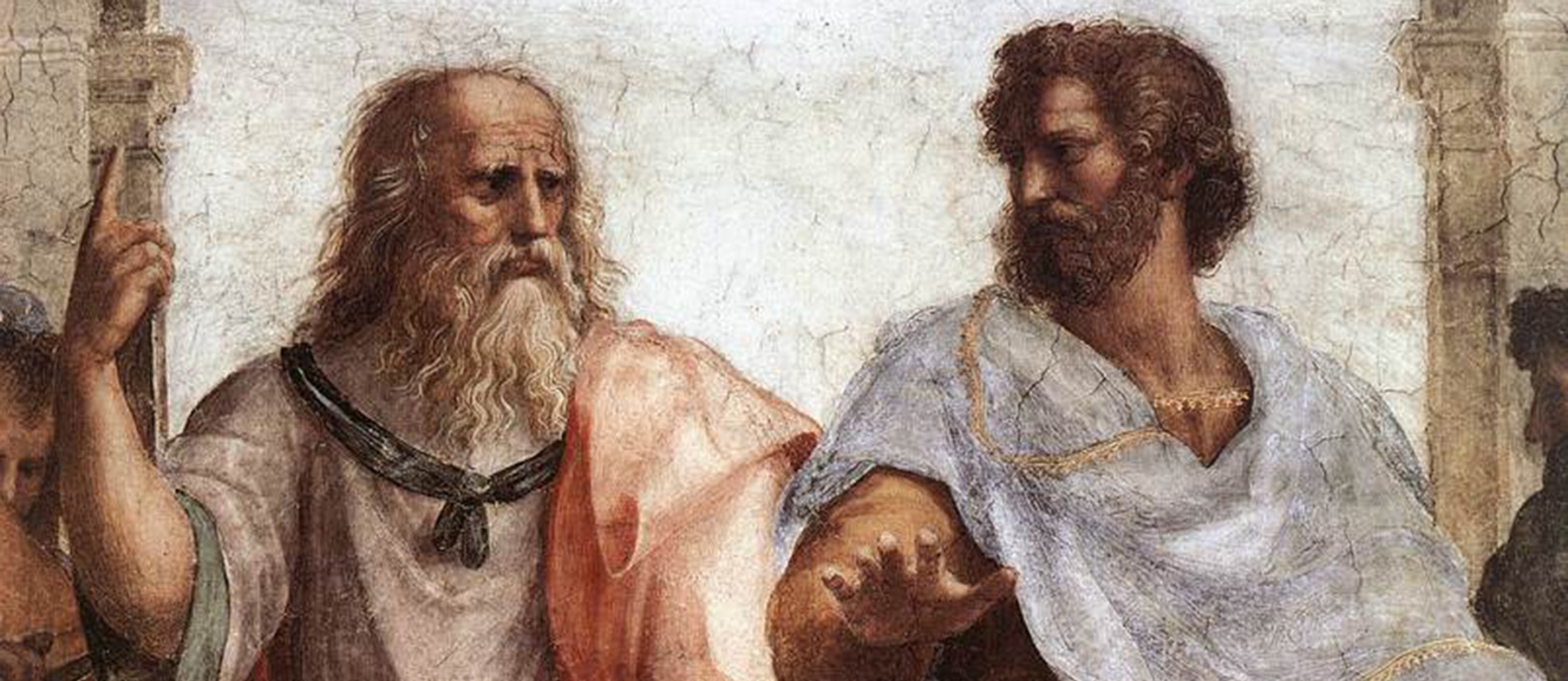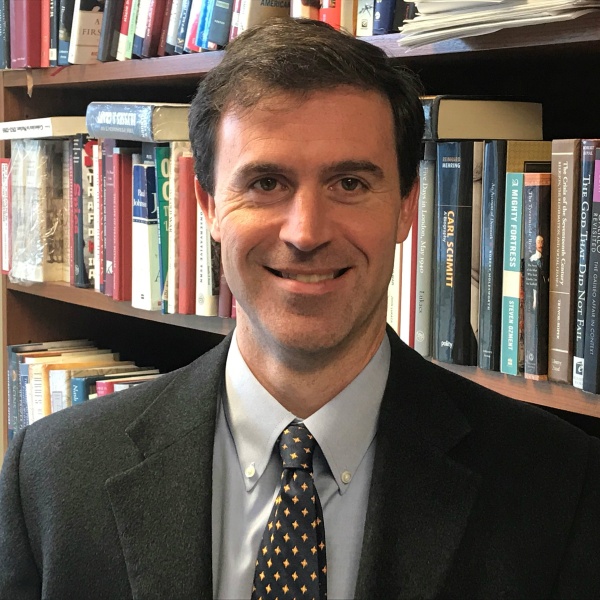In their learned book, The Wisdom of Our Ancestors: Conservative Humanism and the Western Tradition, Graham James McAleer and Alexander S. Rosenthal-Pubul ask: What is the wisdom of our ancestors? Answers to this question figure into how conservatives and classical liberals confront progressivism’s ongoing depredations and its most recent goal of centralizing private capital and property around ESG (Environmental, Social, Governance) objectives. Of course, these objectives are defined by billionaire investors and multinational institutions as a global good against the supposed predations of capitalism. What we might call conservatism, or just “the right,” is itself divided about how to contest progressivism and a certain cosmopolitanism, seen in “Davos Man,” EU politics, and transnational institutions like the United Nations, etc. That split, our authors contend, is between liberal conservatism and nationalism.
The pathologies of our day, stemming from both the cosmopolitan left and the nationalist right, can be healed only with a return to the trinity of religion, family, and education.
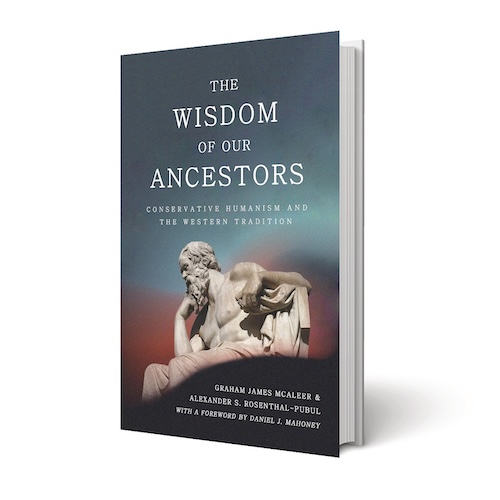
By Graham James McAleer and Alexander S. Rosenthal-Pubul
(University of Notre Dame, 2023)
The authors argue for a conservative humanism that, when understood in the full light of Western thought, is built on the trinity of religion, family, and education. These institutions are rooted in our relational personhood and should elicit from people a noble and dignified life, one where we live well with our freedom. Conservative humanism recognizes these institutions and guarantees them because they are necessary to civilization itself. Other goods are also of significance, such as establishments, i.e., the need for professions, ceremony, honors, forms of behavior and dress. Our authors are clear in the book, contra to contemporary demotic rage, that populism and its devaluation of establishments cannot be the final word for anyone wishing to challenge progressivism or modern liberalism.
But the book is not concerned ultimately with contemporary politics, even though it doesn’t hesitate to note how certain intellectual deformations have led to the bizarre outcomes we currently endure. Rather, it underscores that conservatism conserves and expresses the view that our human nature is constituted by certain truths, flourishes under certain norms of liberty and virtue, requires a restrained and dignified politics, and also is in need of commerce and its creativity, which employs persons in an ever-increasing division of labor.
In fact, a particularly delightful part of the book is its insistence in chapter 5 that commercial society is ennobling, social, and unites town and country, owners and laborers, and the diverse parts of human communities in exchanges of labor for goods and services. Beyond basic needs, our innate desire for beauty and costume, luxury and games, drives forward the work of commerce, propelling the division of labor. Adam Smith’s value, the authors argue, is in his ability to understand political economy’s elastic capacity to enrich people and nations, and to uncover how it decorates human nature.
Conservative humanism combines ancient and classical notions of reason and virtue, combined with the Christian faith’s insistence on charity, devotion to God, and the stunning revolution of human dignity and equality that emerges from the Incarnation. We could call this Christian humanism. But our authors, to their credit, further insist that modernity’s contributions in the forms of commerce, scientific and medical advances, and the early Enlightenment’s insistence on reason, properly understood, constitute essential aspects of conservative humanism. Another part of this achievement is constitutionalism, as articulated by modern thought, which contributes to preserving individual rights and the durability of our nations.
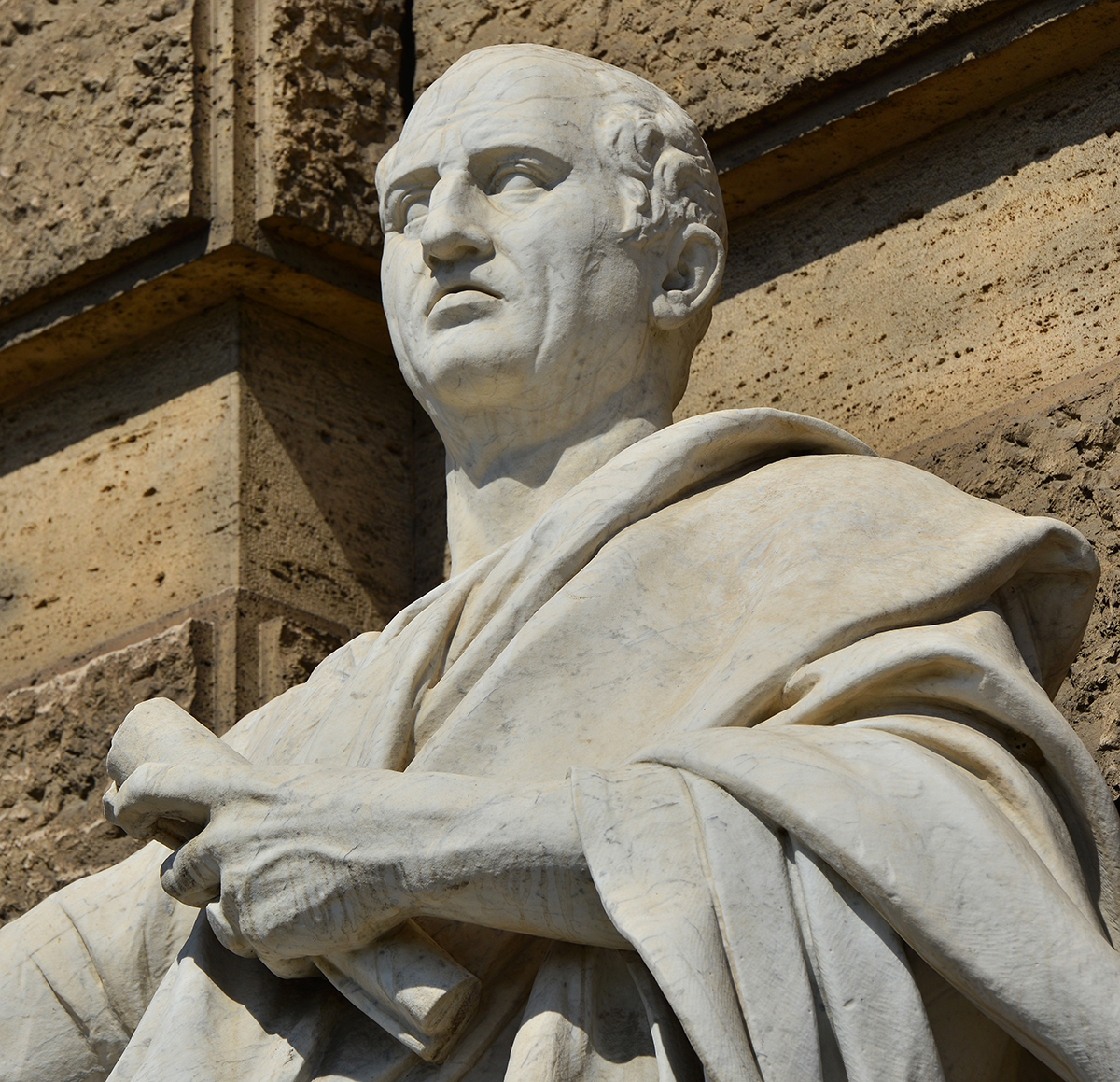
The book spans intriguing commentaries on numerous figures in the pantheon of conservative humanism: Roger Scruton, Edmund Burke, Erich Przywara, Thomas Aquinas, Aristotle, Cicero, Adam Smith, Eric Voegelin, Pope Benedict XVI, Pierre Manent, and Aurel Kolnai, among others. To these authors we can look for a sustained meditation on how conservative humanism upholds understandings of freedom, anthropology, natural law, commerce, and nation against errant articulations by modern liberalism. One example of such error is the reduction of freedom to license or will. Another is the reduction of human nature to purely material form, devoid of the truths of subjecthood or consciousness, unable to know the truth about anything.
McAleer and Rosenthal-Pubul argue that “the real problem is the Enlightenment’s ‘modern self-limitation of reason,’ evident in the positivist and materialist doctrines of the period.” Here is the first error of what the authors, quoting Pope Benedict XVI, call “the second Enlightenment.” The second error is that the source of rights stems not from natural law or natural right but from man’s progressive ability to shape himself by his own subjectivity. As our authors observe, “The abandonment of natural right generates the crisis of liberalism, which no longer believes in any overarching Good, but only in the right of each individual to determine the good for himself or herself.”
The modern delimitation of reason reduces man to part of a whole, eliminating freedom and virtue.
This conception of reason intended to soar beyond a tragic sense of human nature found in both classical and Christian thought. Man, properly understood, is engaged in a progressive project, a “Gnostic project of emancipation from establishment.” But this project, which wanted to exalt human reason, comes to negate the authority of reason to know the truth about the enduring questions and dialogues of human life. Rousseau’s contribution is highlighted by the authors because he articulates that “rights now express not a common nature, but an ideal of individual subjectivity.” One doesn’t have to press things too far to understand how this will turn against the notion of human dignity, which becomes essentially meaningless, incapable of any real grounding. The modern delimitation of reason reduces man to part of a whole, eliminating freedom and virtue.
This reductionism is ultimately what is wrong with both nationalism and cosmopolitanism, with each pole representing a different form of this deformation. This is evidenced by a nationalism that finds meaning arising only from state membership and power. For this form of nationalism, the authors intone, conservative humanism has no sympathy for or connection to intellectually. Alternatively, cosmopolitanism’s inhumanity arises from seeing personhood located finally nowhere, divorced from home, family, community, and faith. Our hope and meaning becomes what exactly?
We require home, establishment, memory, and a certain love for the country we were raised in. The authors look to Thomas Aquinas and his notion of pietas to defend this patriotism or, to use Pierre Manent’s phrase, national loyalty. We should naturally embrace and have a devotion to our country. In defending “conservative humanism as a political middle between individualism and nationalism,” the authors necessarily defend the individual in the differentiated dimensions of his nature. As they say, “liberals are right to point out this emphasis,” and conservative humanism “must affirm the individual as much as liberalism.” But we must also “account for coordination among individuals.”
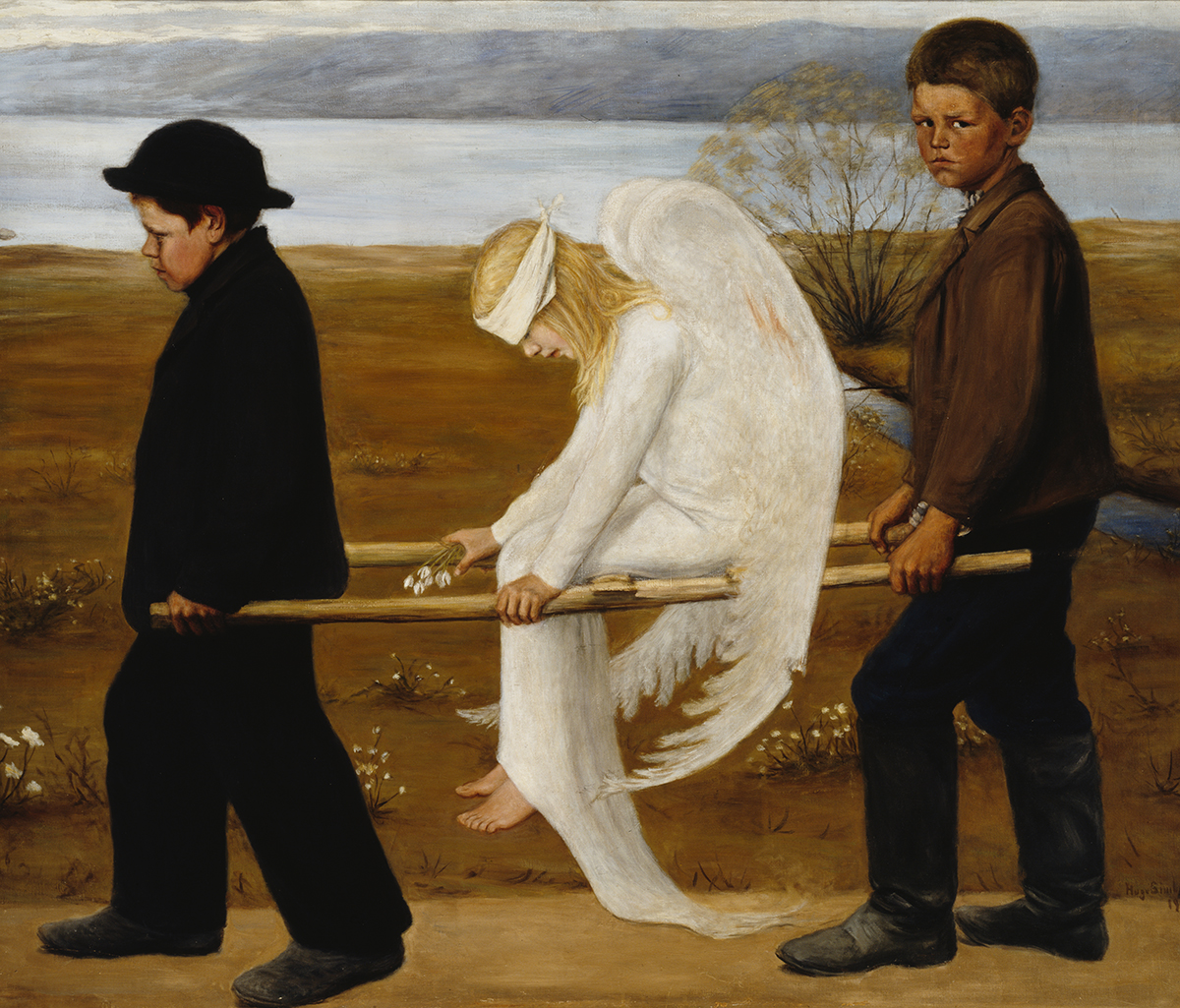
In developing the case for why we should have Aquinas’ pietas, McAleer and Rosenthal-Pubul look to the Dominican’s rich metaphysical account of individuals who possess a nature, a “pattern,” and “like attributes.” What are the patterns per Aquinas? “The world over it is the same: a home, with family fed, healthy, and competent, and friendship among the generations.” There is also belonging in various forms of membership and the “identity” that comes from that membership. Our authors also stress that ritual worship is a necessary human practice, for both community and “personal continuity.” Scruton expresses that the nation provides the law, land, and forms of membership and identity we need as persons. Love of country is therefore the mark of health and flourishing; its absence is a mark of an anti-human politics and culture.
To hate home is to embrace the pathology of oikophobia. But in our national loyalty, we do not marginalize or dismiss other nations and their qualities. We tend to the garden of our own country and hope that others will do the same.
Conservative humanism must also thread “its way between angelism and vitalism,” pathologies that have factored into modern western misery. Both approaches voice a fundamental misunderstanding of the human person and locate man as either a pure spirit, an angel, a being without a nature (angelism), or man as the “shrunken self” of materialism (vitalism). The former may perhaps best be observed in Fukuyamian liberalism, which sees the consummation of equality in liberal democracy as it becomes a truly global phenomenon. What about our limitations as mortal beings, located in places, dependent upon particular peoples, shaped by relationships and obligations? Do all these just get replaced with a global liberal ethos of equality and the endless movement of goods and peoples? Are we angels? Conservative humanism defends equality under law and the commercial society but based on the embodied human person, dignified by the order of nature and grace and one who works and trades to flourish as a relational person in family and community.
Conservative humanism must thread ‘its way between angelism and vitalism.’
Vitalism expresses the view that there is no human nature because there is no overall nature of order and reason. One of the most consequential proponents of this view is Martin Heidegger, who returned to Greek philosophy and Homeric literature and found not reason and natural right, as Leo Strauss did, but violence and exaltation of victors. The West, Heidegger famously argued, had erred by following Plato and Aristotle: there was no truth of nature, but there was the mastery by individuals of competitive situations. Being is not a participation in Essence, as argued by Aquinas, but is locked in a constant appearing—that is, we must fight against a backdrop of chaos to appear in glory. This means that human existence is defined by struggle and risk. Heidegger’s enthrallment with a metaphysics of glory through victory means that “I show myself, I appear, I step into the light. … Glory is the repute in which one stands.”
This isn’t merely an intellectual lesson in Heideggerian and, for that matter, Nietzschean thought, but has clear resonance in certain emerging strands of alt right and nationalist thinking that on similar grounds dismisses both reason and God, equality of persons, and the pluralism of civil society within republican government. The French New Right, the authors outline, prominently voices these perspectives, in more popular form, in opposing, for example, the ongoing migration crisis. This movement is led by Alain de Benoist, who opposes what he labels the component parts of Western universalism: liberalism, Christianity, and colonialism. He contends for the “concretely rooted people” and for “ethnopluralism.” Division of persons by race and culture becomes the new universalism. There is somehow a discrete and given ordering of peoples that must be respected and enforced.
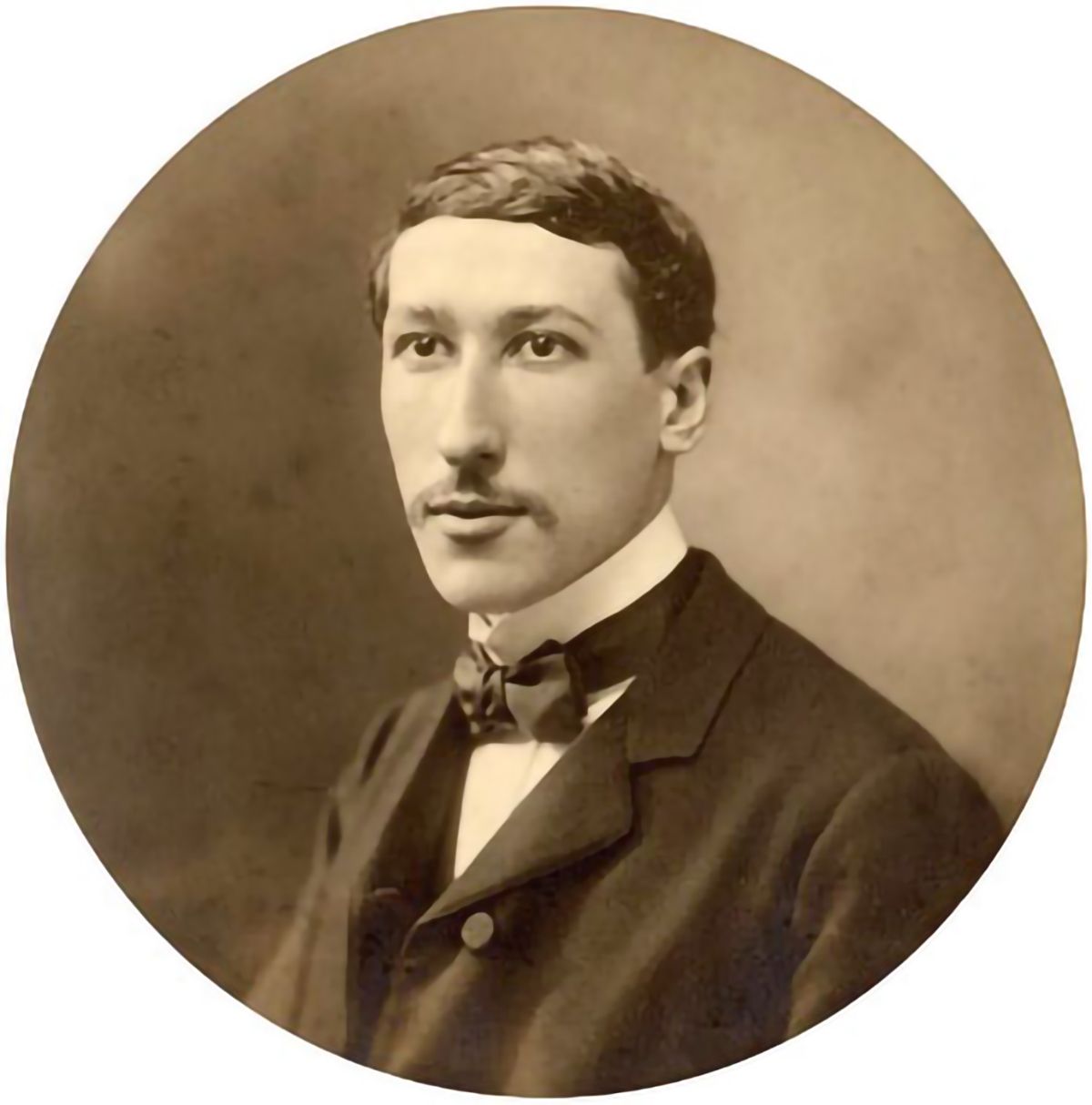
Another thinker in this vein is René Guénon, who articulates a return to the beginning of spirituality, which he calls “Traditions” or a “mystical intuition” that is “truly intellectual.” Much of this amounts to a syncretistic eastern spirituality that forms authentic traditional culture, Guénon believes. All religions, save for Judaism and Christianity, we are told, amount to the same and should be formative of all aspects of a people. This form, Guénon asserts, is essentially the same everywhere despite the various manifestations it might take in the myths and rituals of people. All legitimate groupings participate in this Tradition. The enemy, in this view, becomes the dialogue of reason and revelation, freedom and responsibility, individualism and coordination, which demythologizes Tradition with the imputed error of logos. This cast of mind sets itself against conservative humanism and can easily undergird romantic nationalism.
One of the best discussions in the book concerns the perennial argument about the nature of freedom. The authors rightly note that Fukuyama’s famous argument regarding the end of history culminating in liberal political order is a philosophy of history. This philosophy sees human striving for recognition receiving vindication in individual equality provided by political liberalism. Fukuyama’s modern liberal appropriation of both G.W.F. Hegel and Alexandre Kojève, the authors observe, gives pride of place to individual freedom, politically, economically, and socially. And this can be seen in Fukuyama’s recent beefs with identity politics, which he rightly recognizes as a threat to a decent liberal order because it dethrones the sovereign individual and puts in its place the racial and gender collective as the locus of political decision-making.
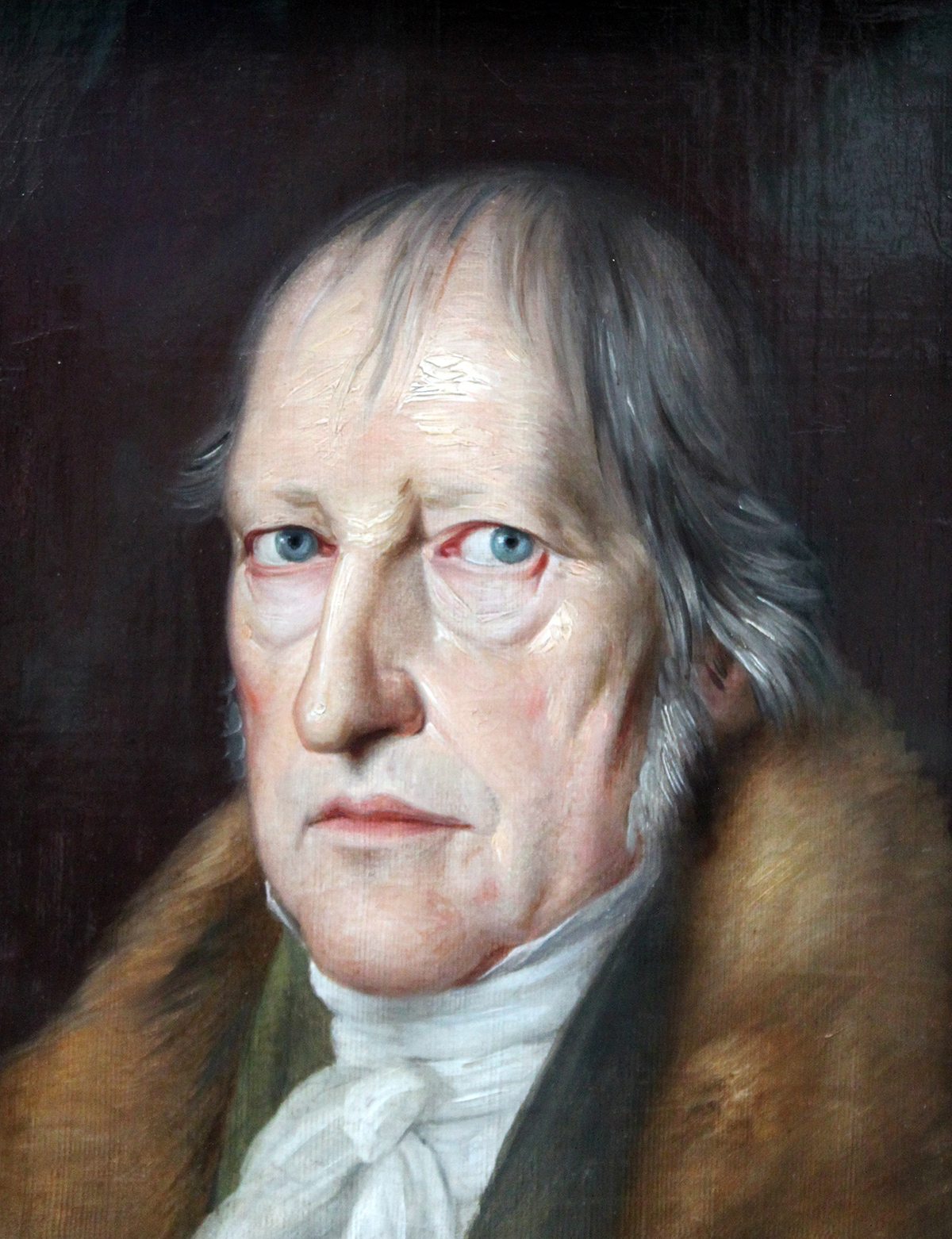
McAleer and Rosenthal-Pubul, though, find Fukuyama’s well-known modern understanding of liberty to be a deficient one in the face of the identity politics challenge because it cannot really answer the question of “Why freedom?” Fukuyama enlists conceptions of negative freedom to defend liberalism and individualism. But conservative humanism answers that the connection between virtue and freedom is integral to human flourishing. The authors don’t turn their back on modern constitutional protections to liberty, coming as those do in the form of negative liberty. They stress that the tremendous freedoms that are ours must be exercised well and to the end of human excellence or we will struggle to see even their purpose. The authors walk us through classical, Stoic, and Christian understandings of freedom, putting this into synthesis as the freedom to do good by overcoming self-centered passions. Christianity, of course, adds that we stand in need of grace to overcome the wound of original sin. Natural and theological virtue need one another.
The deeper contribution is that Christianity rips asunder the Aristotelian relationship of person to polis as limbs to the body. In stressing that the person’s origin and salvation come from God, who is higher than the state, Christianity empties the state of any capacity to define citizens in the comprehensive meaning of the pagan state. Edmund Burke’s attacks on anti-Catholic penal laws in Ireland were built on this point as he rooted his opposition in the spirit of Christianity and the civil law.
But Burke also takes issue with modern liberal conceptions of liberty when he claims, “What is liberty without virtue and wisdom? It is the greatest of all possible evils: for it is folly, vice, and madness, without tuition or restraint.” Returning to conservative humanism’s trinity of religion, family, and education: without these institutions “to educate members of the community in habits of moral virtue,” negative liberty becomes difficult to enjoy. Our worthy modern liberty needs these “intermediate” institutions to “foster freedom” with “virtuous self-mastery.” What is playing out in our time is something else entirely, more akin to Dostoevskian sentiment: we start with a desire for perfect freedom but find ourselves in the conditions of anarchy and despotism.







